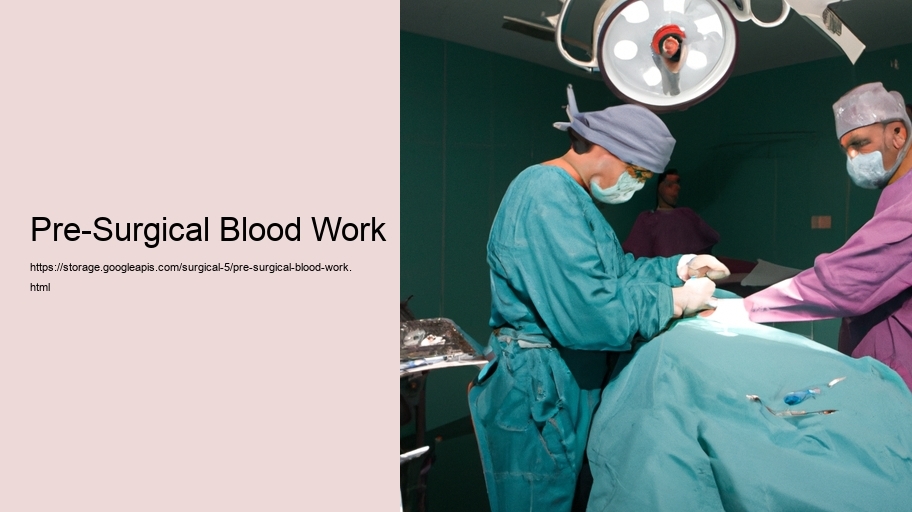Pre-surgical blood work is an essential step in the preparatory phase before undergoing any surgical procedure. This suite of tests provides critical information about the patient's health status and helps in identifying any potential risks that could complicate the surgery or affect the recovery process. It is a standard practice that acts as a safety measure, ensuring that the patient is fit for the operation and that the surgical team is equipped with all the necessary information to proceed with confidence.
When a patient is scheduled for surgery, they are often instructed to undergo a series of blood tests, which may be performed several days or weeks prior to the date of the operation. These tests are designed to evaluate various health parameters such as blood count, kidney function, liver function, and clotting ability, among others. The results provide a snapshot of the patient's physiological state and can alert the medical team to any underlying conditions that might not be immediately apparent.
The complete blood count (CBC) is a fundamental component of pre-surgical blood work. It measures different types of cells in the blood, such as red blood cells, which carry oxygen; white blood cells, which fight infection; and platelets, which are essential for blood clotting. An abnormal count in any of these cells can indicate issues such as anemia, infection, or bleeding disorders, which could pose serious risks during surgery.
Another crucial test is the basic metabolic panel (BMP), which assesses kidney function by measuring substances in the blood like glucose, calcium, electrolytes, and creatinine. Kidney health is particularly important because these organs are responsible for filtering waste from the blood and for maintaining a balance of electrolytes, which are vital for the proper functioning of muscles and nerves, including the heart.
Liver function tests are also part of the pre-surgical evaluation. The liver plays a significant role in processing medications and in blood clotting. Abnormal liver enzyme levels can indicate liver disease or damage, which could affect how the body handles anesthesia and recovers from surgery.
Coagulation tests, such as prothrombin time (PT) and partial thromboplastin time (PTT), are performed to determine how well the blood clots. If the blood does not clot properly, there is an increased risk of excessive bleeding during surgery, while too much clotting could lead to dangerous blood clots.
Blood type and screening for potential transfusion-transmissible infections are also important. Knowing the patient's blood type is crucial in the event a blood transfusion becomes necessary during or after surgery. Screening for infections such as hepatitis B, hepatitis C, and HIV helps to prevent the transmission of these diseases during blood transfusion.
The importance of pre-surgical blood work cannot be overstated. It is a critical step in the surgical process, serving to protect the patient by providing vital health information. It helps the surgical team to customize the care to the patient's specific needs, potentially altering the surgical approach or anesthesia based on the results. It allows for the anticipation and management of potential complications, thus improving the overall outcome of the surgery.
In summary, pre-surgical blood work is more than just a procedural formality; it is an integral part of the patient's surgical journey. It exemplifies the medical community's commitment to patient safety and high-quality care, ensuring that every surgical procedure is performed with the highest possible level of preparedness.
